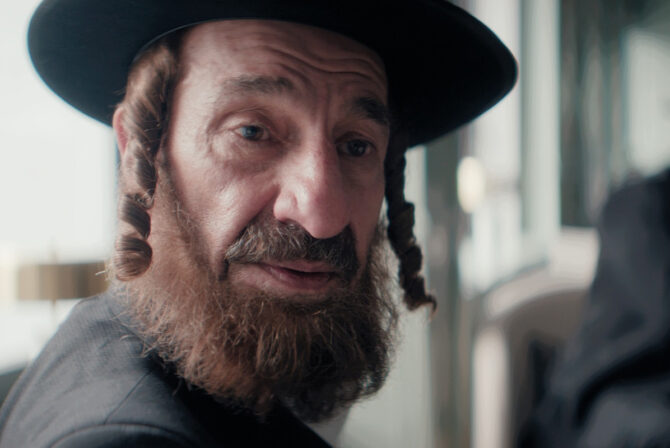Jewish people often use the phrase b’sha’a tova to congratulate a couple when they announce that they are having a baby. Of course, mazel tov and l’chaim are spread around like schmear on a bagel once a baby is born. But, what do you say when someone loses a much wanted pregnancy? There seems to be no handy Jewish catch phrase to say to that couple—at least, there wasn’t when we were that couple.
My husband and I are both carriers of a Jewish genetic disorder. We rolled the dice with our daughter after being told there was a 25 percent chance that my husband and I would pass down the genetic disorder to the fetus. But 25 percent was just a number—someone else’s number. Our daughter was born a carrier of this Jewish genetic disorder, but she was healthy.
But then I got pregnant again, and on December 25th at 14 weeks along, 25 percent became a real number. Our number. Not like one of those numbers you read on a pamphlet in a doctor’s office. It was a real number that meant ultrasounds, panic, confusion, medical procedures with acronyms, needles, tears—and then silence. With my belly protruding in its 14-week pregnant glory, I went home from the hospital silent. And empty.
It was hard to grieve someone I had never met. Sure, I had started planning his nursery (of course). I had a running list of names beginning with “M” to name our son after my husband’s deceased father. Still, lying alone in my grief day after day, I wondered how I could feel that much sadness and heartache about a few cells who did not yet have a human shape, a personality, or a name that begins with “M.”
It’s an odd thing. For a religion that prides itself on asking questions, no one asked me questions about my pregnancy loss. For a religion with copious rituals around shiva (the Jewish customs around death and dying), my fridge was not stocked with kugels and deli trays. I guess I understand. It is hard to give a voice to something that only barely existed, that even I could not see, touch, or feel. And they don’t make Hallmark cards that read, “Hey, sorry you lost your baby. Better luck next time.” Or, “Thinking of you and your miscarriage.” Friends and family often don’t know what to say. And so the loudest, most unimaginable reality goes into the shadows to be dealt with in hushed tones and under tear-streaked covers.
Those were the darkest of days. Though no one brought me a kugel, I decided to give a voice to my loss without a name so that I could move on with my life. I dedicated my psychotherapy private practice to helping women and couples talk about their struggles with infertility and pregnancy loss. And I started sharing with family, friends, and my Jewish community about my grief. My number.
Not too long after that, there were more ultrasounds, needles, and medical acronyms. My husband and I were blessed with a healthy baby boy. Trust me, I know that I am one of the lucky ones. And I feel the blessing of my son every single day. It is not “The Facts of Life” kind of feeling where everyone is smiling all the time, with tidy hair combed, and petty fights resolved. It’s more the kind of blessing in which I am covered with pee, poop, barf, sweat, dog slobber, and mashed avocado (and wiping myself down with baby wipes seems like the most sensible solution). It’s the kind of blessing in which I find a big blue blob of play dough in my afternoon coffee—and drink it anyway (can you imagine trying to fish hot, mushy play dough out of your caffeine when you are sleep-deprived? I wouldn’t go there).
And on December 25, when all of the Christmas cheer is at its merriest, I light a yahrzeit candle and mourn the soul with no name who I never met. And I say a prayer. While there may not be a Jewish catch phrase that could possibly give voice to my loss, I find comfort in breaking the silence with my own personal ritual. One candle. One prayer.
Read More:
A Surprising Antidote to My Infertility Frustration
After Struggling With Infertility, I Feel Guilty About Being Pregnant
Postpartum Anxiety–This is What Mine Looked Like







